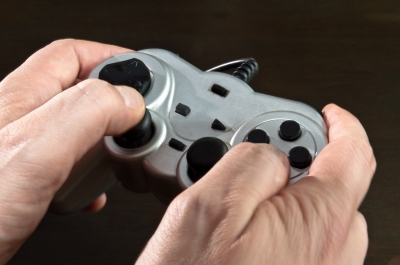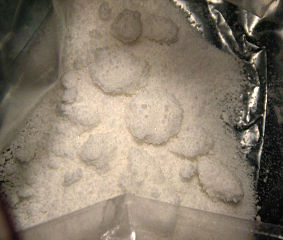
by Lauren Goodman | Nov 11, 2017 | Teen Addiction

Some teens send hundreds or even thousands of texts per day.
Image courtesy of Ambro / FreeDigitalPhotos.net
Tired of your teenager using the cell phone 24/7? Are they answering texts at dinner, during homework, in the middle of the night, etc?
Getting a text message is rewarding in the brain. It makes the teen feel good, and feel compelled to answer right away. While it does build friendships and keep them bonded with their peers, it is extremely distracting!
For teens who are addicted to using their phone, their efficiency is terrible. It takes extra hours to complete any task. It only takes a few seconds to answer a text, but a lot of teens actually send/receive hundreds of texts each day, and some even over a thousand. If you think about it, that’s a lot of time when it’s all added up.
When you require some downtime away from electronics, you are allowing your adolescent to develop an important skill. It is essential that everyone has time for their mind to be quiet and calm. Having the phone at all times means constant stimulation and entertainment. It doesn’t force the brain to be creative. It doesn’t allow time for contentment. You will probably be the victim of a hellacious argument, but requiring the phone be given to you during homework time and at bedtime will do your teenager wonders. They will probably find themselves able to complete assignments faster, and get better sleep. They might also be surprised to realize they are happier.
Studies show that teens who are addicted to technology are actually somewhat miserable. Teenagers who can wait awhile before answering a text because they want to finish their current activity experience a better sense of accomplishment. They also don’t feel obsessive-compulsive. The phone can become kind of like a leash if your adolescent isn’t careful. You will get another added benefit: more quality time with your child. Rather than everyone going out to dinner and sitting in the waiting area on their phones, you might actually talk. You might find you can connect with your child and hear about their day. Eventually they will even like it! That takes time though so be patient.
Helping teens grow and families improve connection,
Lauren Goodman, MS, MFT

by Lauren Goodman | Aug 14, 2017 | Teen Addiction

Coricidin, or “Triple C” is just an ordinary cold medicine unless it’s taken in excess. Then it becomes a dangerous way to get high.
Image courtesy of https://www.google.com/search?q=coricidin+images
Lately there has been an upswing in teens abusing cough and cold medication. As a parent you need to be very aware of this problem because an overdose has potentially lethal side-effects. One of the most commonly abused cough and cold medications is Coricidin (The kids call it Triple C.)
The high comes from one of the chemicals in the drug, called dextromethorphan (DXM). When taken in large quantities, it causes a euphoric feeling, sometimes hallucinations, and out of body sensations. When taken as recommended, it is just a simple cold and cough medication for people with high blood pressure. Teens will often take several doses of the pills at once until they feel high.
The side effects of Coricidin abuse are risky. There can be mild side effects like vomiting, loss of motor control, dizziness, impaired judgement, etc. However, there are also cases of extreme side effects like seizures, coma and death. These side effects are often caused by an overdose of some of the other ingredients in Coricidin, such as the anithistamine. (http://kidshealth.org/parent/h1n1_center/h1n1_center_treatment/cough_cold_medicine_abuse.html#)
One question a lot of parents have is, “How is my teen getting Coricidin?” There are two main ways teens are able to get this drug. The first is taking it right out of a medicine cabinet at home. Many of my teenage therapy clients say they just took it from their parents or friends’ parents. They say it was in the medicine cabinet. The other way teens seem to be getting Coricidin is stealing from a local drug store. Coricidin is not usually locked away behind plexiglass even though Coricidin abuse is a known problem. The kids stick a box in their jacket, go buy a pack of gum, and just walk out.
It is really important to ask your teen if they have tried “Triple C” or if it has been offered to them. It is also important to check through their stuff if you suspect it. The risks associated with an overdose are very serious. Please do not take it lightly if you find out they’ve tried it.
It’s scary because most teens really don’t know what they’re doing when they’re offered stuff like Coricidin. They have absolutely no idea how dangerous it can be to overdose. In fact, most teens don’t even realize you can overdose on it. If they do, they think it can never happen to them. Adolescents are notorious for thinking they are outside the consequences others have faced.
Keep having an open dialogue with your teenager. Keep talking with them about the dangers of various drugs they might encounter. Keep them educated on what certain drugs look like and what to watch out for. Some parents worry if they educate their teens on certain, they are just inviting their teens to try it. I suppose there are all kinds of kids, and in rare cases this might happen. For most teenagers though, having knowledge helps keep them out of trouble. You know your child best so use your judgement when deciding how much to tell them.
There are two good take-aways from today’s blog: 1) “Triple C” or Coricidin can be dangerous when taken in excess and 2) The most common place teenagers get things like Coricidin is their medicine cabinets at home- pay attention to what they can easily access.
Helping teens grow and families improve connection,
Lauren Goodman, MS, MFT

by Lauren Goodman | Jul 26, 2017 | Teen Addiction

There has been a steady increase in THC, which makes marijuana more addictive than in the past.
Lately I have been receiving a lot of calls from parents about their teens using marijuana. Teenagers have always experimented with marijuana, but recently something is different. The teens who are coming in are complaining that they literally cannot quit using. Marijuana has a reputation for being non-addictive, so why all of a sudden are there teens who feel addicted?
The addictive part of marijuana is called “THC.” The potency of THC in marijuana in the US has more than doubled since the 1990s. So, while marijuana possibly was not as addictive in the past, it is now.
The teens I have been working with say they have difficulty sleeping, anxiety, and a general feeling of discomfort if they stop using. It is also so deeply ingrained psychologically that they have a hard time changing. They have made friends around using marijuana, developed rituals and routines, and have become accustomed to lying.
Therapy is a good format to confront marijuana addiction. It is really important for the teen to feel like someone understands how difficult it is to quit using. A lot of people say things like, ‘Marijuana isn’t addictive, so just stop using it.’ Therapy is also always helpful to the teen’s parents in making changes at home that support sobriety.
If your teen is smoking marijuana, it is really important for you to confront them. Don’t look the other way. No matter what your teenager tells you, it is easy to graduate to more intense drugs. Your teenager is also associating with people that you probably wouldn’t like. Your teen is likely not being entirely honest with you about how frequently they use, or how much. Marijuana is a deeper problem than people like to think.
When you talk with them about it, be gentle and loving. However, if you set boundaries around drug use, make sure you stick with them. Do something to hold your teenager accountable such as promising to randomly drug test, or take them to counseling. Most importantly, do not be swayed by their logical arguments about why marijuana isn’t bad for them. The newest scientific research coming out says otherwise.
Chances are if your teenager is using marijuana there are some noticeable signs. Perhaps you’ve attributed these signs to them being older. Your teen may be more argumentative, secretive, trying to have more independence, seems to lack money, is worried about money, often appears lazy, has bloodshot eyes more often than they used to, and eats a greatly increased amount of junk food in one sitting. These symptoms don’t necessarily indicate marijuana use, but they certainly warrant you either asking or testing your child. By the way, if your adolescent refuses a drug test, definitely be suspicious something is up.
It takes a lot of nerve, and love to confront your teenager on drug use. It’s a hard thing to do because if they’re using, certainly part of you doesn’t want to know that. They are very likely to be offended you are asking, whether they use or not. It’s almost never an easy discussion, but it’s one of those things that has to be done from time to time. Whoever said parenting is the best thing in life was generally right, but should have included the caveat that it’s also one of the most difficult things in life.
Helping teens grow and families improve connection,
Lauren Goodman MS, MFT

by Lauren Goodman | Mar 15, 2017 | Teen Addiction

Technology addiction in teens is a growing problem.
Image courtesy of Ambro / FreeDigitalPhotos.net
12 signs your teenager might be a technology addict:
1. Cannot part with the smart phone: If you are at the dinner table, your teenager has their phone sitting beside their dinner plate. You cannot get them to give it to you at night and you have caught them texting at 2 or 3 in the morning on more than one occasion.
2. Is missing sleep to play games/check Snapchat/text: Teens need between 8.5 and 9.5 hours of sleep to function at their optimum level. If your teenager is getting fewer than that and yet spends multiple hours doing useless online tasks, they are losing sleep for online time.
3. Has more online friendships than offline: Teenagers who constantly text, Snapchat, Instagram, talk through Xbox Live, and other forms of online socializing might have this problem. This is particularly true when you never actually see any friends in person, and when your teenager never seems to go out.
4. Spends more than 3 hours a day in front of a screen: They do need some screen time to complete homework. That’s just the way it goes these days. However, checking messages hundreds of times per day takes a lot of time, and is addictive.
5. Is unhealthy in other areas of life as a direct result of screen time: If your adolescent is not taking care of their spiritual, emotional, academic, family, social and physical health it’s because those things all require a little bit of time and effort. When all available energy goes into online activity, there often isn’t much left over for the real world.
6. You are fighting about technology use all the time: Do you find yourself constantly irritated by how much time your teen is spending on their phone/computer/gaming console? Are you asking them to stop all the time, or threatening to take away their electronics? Maybe you wish you could have a conversation about something else for a change, or even a conversation at all. This can be a sign of electronics addiction.
7. Sneaks it when you say no: You’ve turned off the wifi and told your teen they cannot use the internet for the rest of the day. You catch them using their data plan on their phone, or sneaking to turn the internet back on.
8. Won’t engage with family on account of using an electronic: The family is getting together to go out to dinner, watch a movie, or play a game. Your teenager has no interest in joining you because they’d rather watch Netflix or play video games.
9. Is better at video gaming than anything else in life: Your teen’s primary skill is video gaming. They are extremely talented at playing video games, but cannot cook an egg, hammer in a nail or write an essay. We are good at skills we spend time working to improve. If your teenager only develops skills with a gaming remote, then they won’t have much to market to the real world later in life.
10. Only requests technology related gifts for birthdays and holidays: Your teenager isn’t asking for new clothes, to be taken to a certain restaurant, or for movie theater gift cards. The only thing they want you to get for them is the new version of a game they like to play, the most recent version of the iPhone, a new tablet, etc.
11. Is only motivated by access to electronics: The only way you seem to be able to get your adolescent to complete tasks is to either bribe them with a new electronic gadget, or threaten to take away their current gadget. They don’t want to work for money, pride of doing a good job, or to learn useful skills for their future.
12. Chooses screen time over personal hygiene: Your teenager really should shower more than they do. However, shower time is procrastinated because they are watching Netflix, playing a game or can’t put down the phone. Sometimes it gets so late they end up missing days of personal care. You now feel like you’re on their back all the time like when they were 3 years old and didn’t like to take a bath.
Technology addiction in adolescents is a serious growing problem. It is difficult for parents to understand because we didn’t grow up with nearly as many distractions. There was one phone in the house and it was attached to the wall with a cord. The family might have had a single computer and splurged for 10 hours per month of dial up internet access. As a teen if we were bored we had to call a friend, read a book, go for a walk, etc. Now there is an instant way to be entertained and feel good. Once this turns into addiction, it becomes a huge battle in the home. It is frustrating and overwhelming for parents. Getting help to get life back on track is essential to everyone’s well being.
Helping teens grow and families improve connection,
Lauren Goodman, MS, MFT

by Lauren Goodman | Jan 23, 2017 | Teen Addiction

Gaming creates psychological addiction in teenagers.
Credit: Idea Go/freedigitalphotos.net
Something you might be struggling with is how to control much your teenager uses video games. Teens completely lose track of time while they are playing engrossing and challenging video games. This can become so severe that they become sleep deprived, stop exercising, do all their socializing with other people playing the games and watch their grades plummet. You might feel like your relationship with your teenager has gone downhill. You used to spend time together but now they are always itching to get back on the computer or back to the Xbox. It’s driving you nuts! It also has you very worried.
What do you do?
Before you do anything you have to remind yourself that you’re the parent. This doesn’t mean you become rude or threatening, but it does mean you know it’s your house. You’re paying the bills. You most likely bought the Xbox. Once you firmly believe this and have truly gathered the grit you’ll need to regain who is in charge, you’re ready.
Step 1: You and your child’s other parent need to remember many times in the past when you set a boundary for your child out of love. Go back to when they were really small because it’s very straight-forward when they’re young. You used to make them hold your hand when they crossed the street. Although they wanted to run into the street, you stopped them because you loved them enough to keep them from being hit by a car. They might have protested and even tried to pull their hand away, but you held on tight. When they got a little bit older you didn’t let them go swimming without an adult present. You loved your child enough to tell them they had to wait until someone could sit and make sure they were safe at the pool. You loved them too much to let them drown. They might have protested then too, but you understood that children don’t necessarily see the danger in an activity they really want to do. When they were even older you made them finish their homework assignments. You understood that they didn’t want to do it, and you hated to see them struggle and be frustrated, but you loved them enough to ensure they could read, write and do some math. You get the idea. Come up with at least 10 examples of when you parented out of love even when your child didn’t appreciate the limits you set.
Step 2: You and the child’s other parent need to define the consequences of what will happen if your child continues to be addicted to video games. You don’t need to share this with your kid, you just need to know it for your own sake. You need to know what the metaphorical cars are that might hit your child if he runs into the metaphorical street. For example, “If my daughter continues to play 5 hours of video games per day, she will not develop the social skills she needs to have healthy friendships.” Another example is, “If my son continues to spend his whole weekend playing video games, he will not get the exercise he needs to have a healthy body and live a long, pain-free life.” Keep going with this until you have exhausted the list. Again, this is essential because you have to know the dangers from which you’re protecting your child. You have to see how addictive video gaming can lead to emotional death, physical ailment, stunted development, etc. This has to become scary enough to YOU that you are ready for the fight you will probably have when you set limits.
Step 3: Define the limits and consequences. You and your child’s other parent still need to work together on this. Decide together how often your teenager will have screen time, and what the consequences are if your teen sneaks more game time. Make sure you are both on the same page with this. If you truly think your child has an addiction then it is advisable to completely eliminate any form of computer and online gaming for at least 6 months. Your child needs to “dry out.”
Step 4: Present your plan to your teenager. You will probably get an argument, comments about how you’re stupid, or a lot of tears. Stay extremely calm and even show empathy (Remember, they’ve just lost their favorite activity and access to online friends). Do not bend though. This is not a compromise. You run your house and you are the parent.
I know this is not easy. Once you really walk through these steps you realize how much of an addiction your teenager has. It is alarming to realize the dangers your teen is facing. They are indirect dangers since your teenager is physically at home, in a chair. They are dangers that come from an isolated, inactive lifestyle. Stay the course and be patient. Eventually your child will actually tell you he or she is glad you intervened. This is once they re-engage in the real world. Until then, remember that loving your kid well doesn’t mean always being liked.
Helping teens grow and families improve connection,
Lauren Goodman, MS, MFT

by Lauren Goodman | Jan 16, 2017 | Teen Addiction

Addiction to drugs is heartbreaking for the rest of the family.
I was browsing the internet today for poetry that captures how a family member feels who has an addicted sibling, child, parent, etc. I think this poem captured it beautifully. It is very sad.
The Battle
© Julie
The words that have yet been spoken
The things I need to say.
To voice what’s within my heart
I just can’t find a way.
I’ve fought with my emotions
I’ve held them deep inside.
I didn’t want to face what for so long
You’ve tried to hide.
I’ve been lost within the dark
for so long I’ve seen no light.
Holding on to the memory
of a time when things were right.
I’ve looked upon your face
and seen the sadness in your eyes.
The battle of addiction
you no longer can disguise.
I’ve prayed to find the answers
of what I myself must do.
And I’ve prayed for the strength to fight
through the hell that I go through.I’ve held on for so long
but I can no longer watch you die.
I cannot fight this for you
but Lord knows how I’ve tried.
It’s just so hard to watch the ones you love
slowly slip away.
That’s why I just blocked it out
and held onto yesterday.
I don’t have all the answers
or the power to save your soul.
You’re broken, lost and lonely
and I cannot make you whole.
This fight is yours and yours alone
no matter what I do.
For I cannot save you
the only one who can
is you.
Poem Source: The Battle Of Addiction, Addiction Poemshttp://www.familyfriendpoems.com/family/poetry.asp?poem=19622#ixzz13ayD0CeI
Wow! That is so powerful. This is a great poem though. It really helps us understand both the heartbreak family members feel, and the struggle they go through to stop trying to save someone who doesn’t want to be saved.
Helping teens grow, and families improve connection,
Lauren Goodman, MS, MFT












